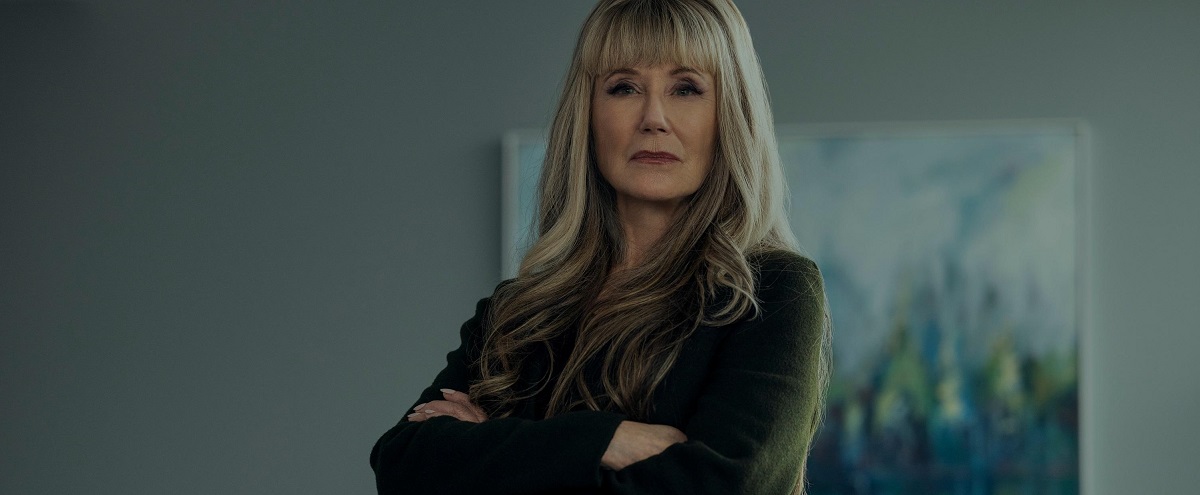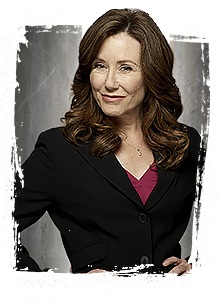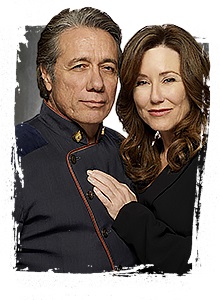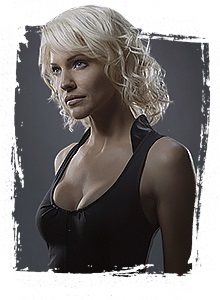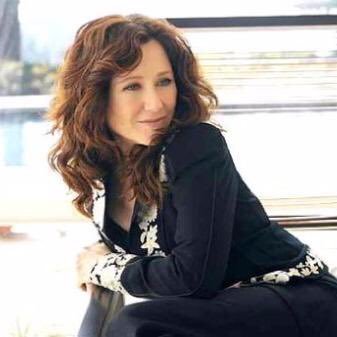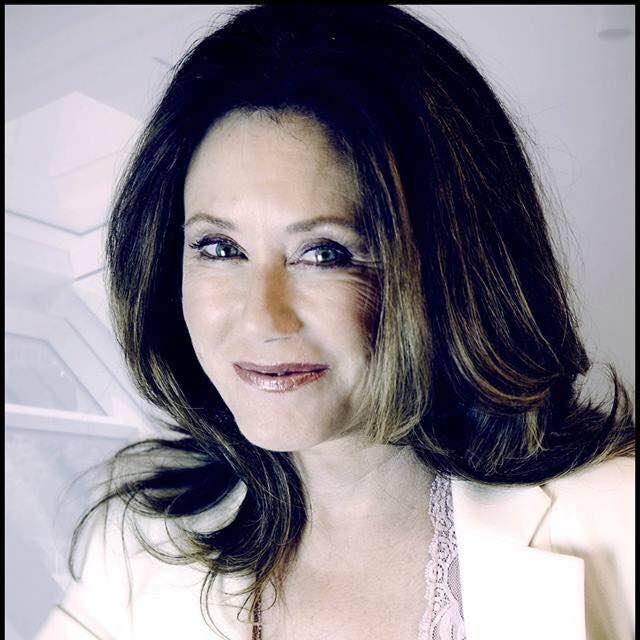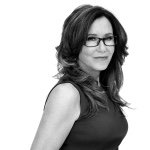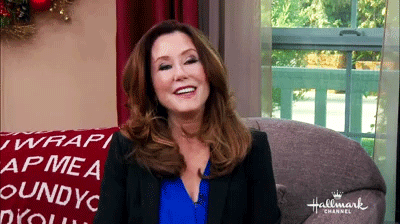
See you on the other side: ‘Battlestar Galactica’s’ series finale, ‘Daybreak’
Craig Ranapia
March 21, 2009
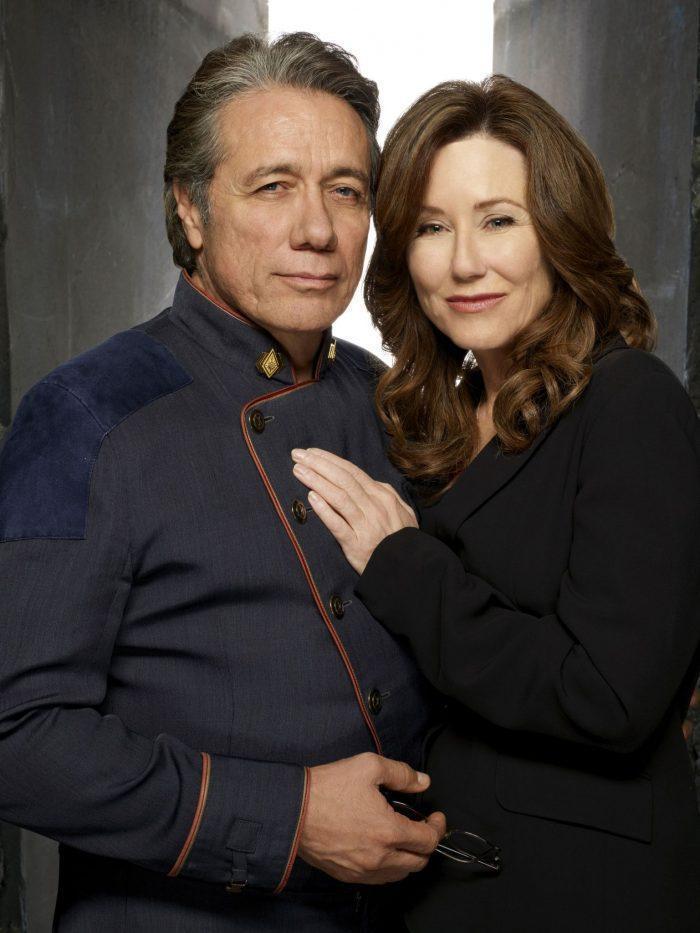
Remarks by Edward James Olmos, Mary McDonnell, Ron Moore and David Eick after the finale screening on March 16.
I have not transcribed every single word of this panel. Because at this stage, my fingers are in danger of falling off after all the transcription I’ve done lately.
Was Kara just an angel, and were we all chasing down a rabbit hole or something when we assumed that her father was Daniel, this missing eighth Cylon?
RDM: Daniel was definitely a rabbit hole. It was an unintentional rabbit hole, to be honest. I was kind of surprised when I began picking up on speculation online among people that Daniel – [who was,] for those of you who don’t know, a deep part of the Cylon backstory that had to do with one of the Cylon skinjobs that was created by the Final Five, who was sort of aborted by Brother Cavil in the deep, deep backstory of the show. It was always intended just to be sort of an interesting bit of backstory about Cavil, his jealousy, a sort of Cain and Abel allegory. Then people started really grabbing on to it and seizing on it as some major part of the mythology. In a couple of interviews and in the last podcast, I’ve gone out of my way to say, “Don’t spend too much time and energy on this particular theory, because it was never intended to be that major a piece of the mythology.” It was never intended to take that kind of load-bearing weight.
DE: It’s like Boxey in that way.
RDM: Kara is what you want her to be. I think Kara – it’s easy to put a label on her of angel or messenger of God or something like that. Kara Thrace died and resurrected and [inaudible] and took people to their final end, and that was sort of her role, her destiny in the show. That’s sort of the long and the short of it. We debated back and forth in the writers room for a while about giving more definition, giving her more clarity and saying “This is definitively what she is.” And we started to say, the more you try to sort of outline and give voice to and put a name on it, the less interesting it became, and we just decided this was the most interesting way to go out, with her just disappearing and [you’re] wondering just exactly what she was.
Are we to assume that there are a lot of pissed-off Cavils out there still, or …there’s no definitive answer, or they were destroyed?
RDM: Well, the final final [cut] came out a little less clear on that level than I certainly intended. It’s one of those things we didn’t quite see through all the way to the end. It was scripted and the idea was, that when Racetrack bumps [the button on the controls], hits the nukes, the nukes come in, smack into the Colony, takes the Colony out of the stream that was swirling around the singularity and it fell in and was destroyed and torn apart. I think as we went through the show and kept pulling out [moments for] time and we kept cutting frames and doing this and that, one of the things that became less apparent was that the Colony was doomed.
At what point, Ron, did you decide to make it Earth in the past that were going to wind up at, and what was your reasoning for that?
RDM: We decided that quite a while ago, a couple of years ago. I don’t think we ever really had a version of the show where we talked about it being in the future of being in the present. Those didn’t seem as interesting. We sort of, in the early going, [began to] started talking about the fact that we would see a lot of contemporary things in the show, from language to wardrobe to all sorts of production design details. And that only made sense to us in terms of, actually a lot of the things that we see in the show and we feel are taken from our contemporary world are actually theirs to begin with and somehow spread down through the eons and came down to us through the collective unconscious or [inaudible].
DE: There was a time when we were talking about literally, you know, they land and it’s pterydactls and Tyrannosaurus rex. But it was really the idea that they were part of the sort of genus of humankind and this seemed like the right and more affordable way to do that than “Jurassic Park.” [laughter]
RDM: We had the idea of Six walking through Times Square – we came up with a long time ago.
Do you have any clues as to who attacked the original Earth… and why did Cavil shoot himself?
RDM: The backstory of the original Earth was supposed to be that the 13th Tribe of Cylons came to that world, started over and essentially destroyed themselves. There was some internecine warfare that occurred among the Cylons themselves, which was another repetition of the cycles “all this has happened before and will happen again.” …
Cavil killing himself came from Dean Stockwell. [in the script, Tigh was supposed to fling over the edge of a higher level in the CIC.] Dean called me himself and said, “You know, I just really think that in that moment, Cavil would realize the jig is up and it’s all hopeless and just put a gun in his mouth and shoot himself.
This is for the actors, what was the last scene you filmed and how hard was it to complete that?
MM: My last scene was my last scene, it was Laura Roslin’s last moment in the Raptor. And that was at about 4:45 a.m., on a very small set. I think I was one of the first people to wrap. And she died. My son and I went to the airport and flew to L.A. [laughs] It happened quickly, it wasn’t set to happen then, it was set to happen a week later. And the schedule was changed.
EJO: My last day was the [last shot of Adama] on the mountainside. It was the last moment that I’m on camera. It was quite an experience all the way around, that moment in time. It was real easy. I think everybody had a real easy time with the emotions that we had at the very end.
[To sum up part of the question, it was about the Watchtower theme/”All Along the Watchtower”] Are you trying to get at some notion that this is some kind of universal consciousness that goes back as far as the human and Cylon races have been in existence. Or is there some history to the song in this narrative that I’m missing?
RDM: Yes [laughter]. The notion is sort of what you posited. The music, lyrics, the composition is divine, it’s eternal, it’s something that lives in the collective unconsciousness of everyone on the show. … It’s sort of a connection of the divine and the mortal. Music is something people literally catch out of the air, they can’t really tell you and define exactly how they compose it. Here is a song that transcends many eons and many different people and cultures, literally across the stars, and ultimately was reinvented by one Mr. Bob Dylan.
DE: It was a simple way, I thought to communicate clearly that this is not the future, that this is a story [that related] to ours. [There was a plan to introduce the song in Season 1 but they ended up feeling it was too soon.] We were thinking about it that far back, that music would be a great way to say to the audience, “No, no, this all follows that cyclical theme of this has all happened before and it will happen again.” This culture is the one that gave birth to ours… [All the slang and cultural stuff,] we get that from them, not the other way around.
[Setting an end date] — did that right the ship in some ways or change the process for you?
RDM: Well, I know in terms of the writers room, it certainly focused us. We kind of made the decision that the fourth season would be the last season at the end of the third season. [It made them more focused and specific about ending the show.] Part of the motivation to make it the final season was that we didn’t want to get to the place that we felt like the ship was keeling over and had a problem. We also instinctively felt the show has reached the third act by the time it got to the end of that third season. [He added that there was a more intense energy level on the set in the final season.]
MM: As you are able to do when you’re doing a play, you can then kind of kick into gear and plot your finish. And what that ends up doing is simplifying things for you because you know where you’re headed. And you can let go. … I think a lot of us felt a kind of simplification and a humility that came over us. It gives you a lot of energy. You just know where you’re going and proud to be a part of it and you let go.
EJO: We had a meeting at the very beginning of the show … in my trailer … 13 of us.
MM: He had the biggest trailer. It really was great, we really miss our trailers.
EJO: We sat down and discussed what we were doing and what the possibilities were. We talked about making sure that we understood that if by chance … [the show] was to move forward as a series … that we had to understand that. I don’t think anyone had done a complete series. Had you?
MM: No, I never made it past 13 [episodes].
EJO: We finished “Miami Vice,” we did five years, but we never really had a finish with it. There was never some plan. … I just know if we did this, we would go through this story and the story would have a beginning, a middle and an end. And that we had to pace ourselves. So [starting] the fourth season, we had a meeting and we were told then that this was going to be the final season. So everyone got very, very depressed. I don’t think anyone wanted to stop the show. Ron made it very clear from the conception that there was a beginning, a middle and an end. And we had hit the end.
So in our meeting, we talked about the very first time we’d gotten together. And [we said] it’s a marathon. In a marathon you have to … start out strong. The next 25 miles has to be consistent. … Then the last mile has to be the strongest mile. We all knew that going into the final [season].
That very last scene, the Head characters, are they angels or are they demons?
RDM: Well, I think they’re both. WE never tried to name exactly what the Head characters [are]. …We never really looked at them as angels or demons because they seemed to periodically say evil things and good things and they tended to save peple and tended to damn people and there was a sense that they were in the service of something else… that was guiding, helping, sometimes obstructing, sometimes tempting the mortal people on the show. The idea at the very end was, whatever they are in service of continues and is eternal and is always around and they too are still here with us, with all of us who are the children of Hera. …
A few words from Mary McDonnell
MR: You’ve attended a lot of events during your career – is this one special to you?
MM: Totally. Because it’s brand new. It’s something I’ve never experienced before. Very few of us have experienced this idea, that policy and ideas that come from the collective can be supported by the entertainment industry in a way that has no political agenda. It’s really about connecting to human rights, that’s really what the whole thing is about.
MR: I think “Battlestar” would never have worked had the writers had this list of, “Here are important topics we’re going to bring up.”
MM: It wouldn’t work. Ron knows that almost better than anyone. He creates from a place that doesn’t seem to be conscious of what people need. He has an instinct for it. It’s in his subconscious. But because he isn’t trying to teach anyone anything, he incorporates the human experience, which includes a great deal of humor and a great deal of complexity. He’s kind of a master at this at understanding this. I don’t think he really knew [it would eventually get this kind of reception].
MR: Yeah, six years ago, who knew your show would end up here?
MM: This and the AFI Awards and the Peabody Award – these feel like the path of this show. The sort of destiny of the show. If eventually the Emmys become a part of that, that’s wonderful, but that doesn’t seem to be the end of the line. This is the point. The point of this show is that something like this can happen.
MR: You said something on the panel, about how the goal of the artist is to connect with the world.
MM: Completely there’s no other reason to do it. The experience of doing it means nothing unless you feel like you’ve connected to the people at large. And in this experience [with the fans of the show], the people are so smart, so verbal, and they give so much back that you feel like you’ve just been given a warm bath.
MR: The young people that were here, they had some good questions. It seems like they wonder about technology more than we do.
MM: They know that they are the leaders of all the technology [developments]. They have questions, they don’t really know how to bring their compassion along. They’re trying to figure out — how do we tie the human element of our heart and compassion into this quickly evolving mechanism we’re using. They’re afraid they’re going to lose something and to a certain extent, they will, if technology and the heart don’t connect. And I think Ron is trying to talk about that.
MR: Because the whole show is about connecting.
MM: Right. Totally.
Check link source for full article and info.
